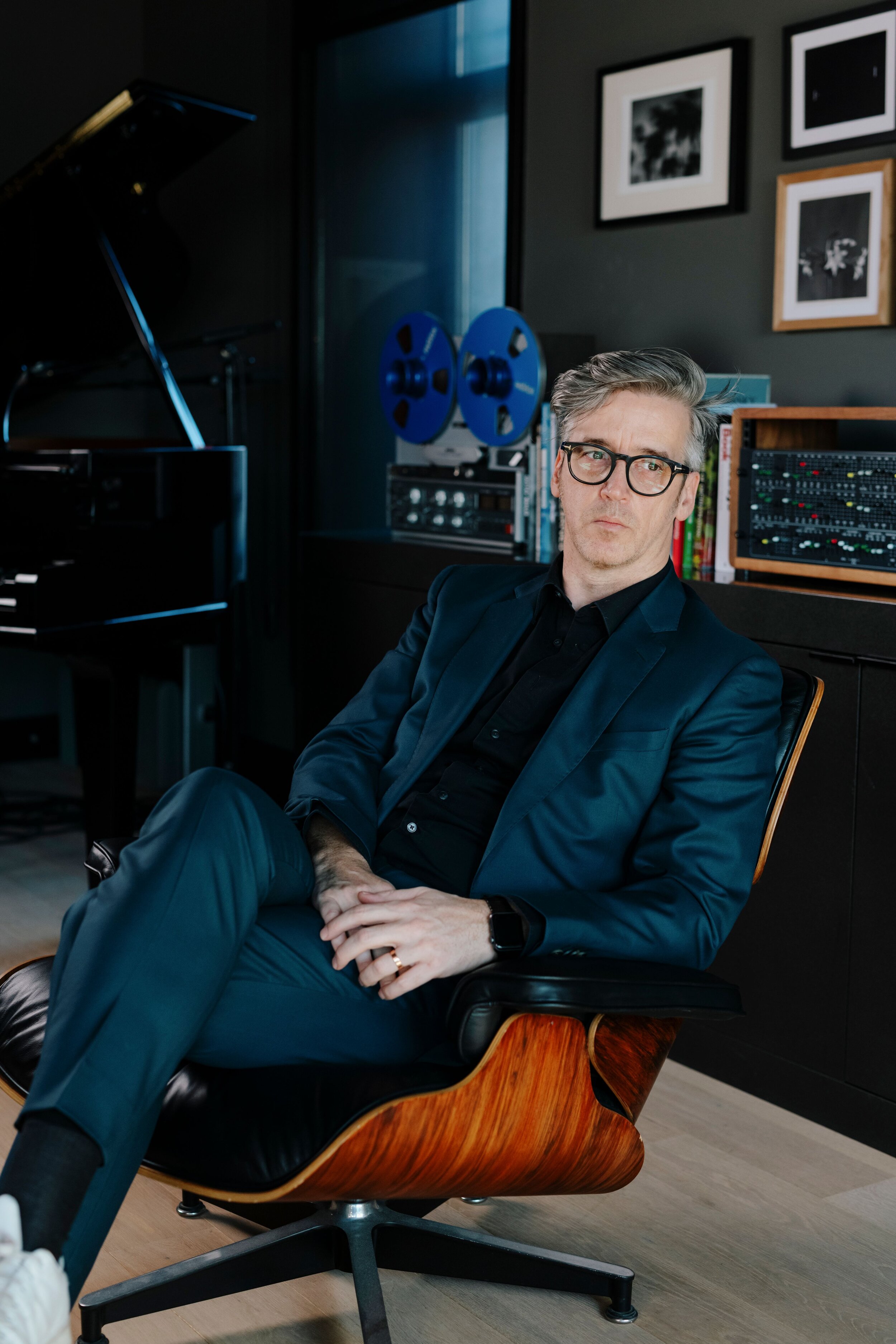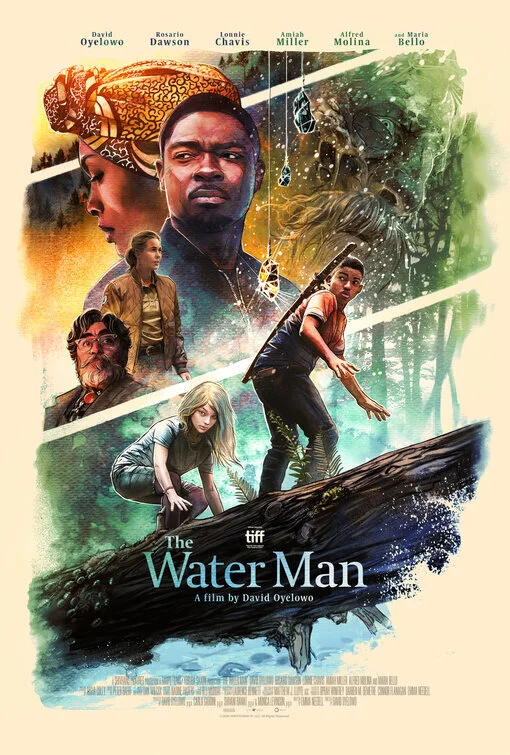‘The Water Man’ Composer Peter Baert Discusses His Personal Connection To the Film
Baert's score can be heard on David Oyelowo's upcoming directorial debut The Water Man, and the composer’s journey to the big screen is as fascinating as the film itself.
Composing films had always been a dream for Belgian Musician Peter Baert, and his journey to the big screen is as whimsical as the film he recently completed. ‘The Water Man’, the directorial-debut of critically acclaimed actor David Oyelowo channels Baert’s love of films from his childhood; the innocence and the imagination of films such as ‘E.T. the Extra-Terrestrial’, ‘The Goonies’, and ‘The Neverending Story’, The Water Man follows a young boy by the name of Gunner as he sets out on a quest to find a mythic man with healing powers in order to save his dying mother.
In anticipation of the film's release, FilmSpeak’s Dempsey Pillot recently sat down with Baert and got to hear all about it.
DEMPSEY PILLOT: Now, my first question. The film's coming out in a couple of weeks. Are you excited?
PETER BAERT: I'm very excited because it's been a long way since I started on this movie, and I'm very excited that the soundtrack is also coming out. That's a nice thing as well.
DP: How did David Oyelowo specifically pick you to compose his directorial debut, or how did you become involved with this project?
PB: Well, I have a sound studio here in Brussels, and one day I got a call to record a voice of talent. It turned out to be David, who was shooting here in Brussels for Les Miserables, the BBC series. Just that day one of our engineers was sick, so I had to jump in engineering and was with David - it was a really cool session. In breaks, we talked about film and his work and my ambition to make film scores. A couple of weeks after that, I saw on IMDB that he was producing this movie, and I just [emailed] him, "Could I pitch on this?" He sent the script, so I took my time and I made like 8 cues - around half hour of music - on the script. He kept sending me e-mails saying, "This is so beautiful. I can't stop listening." Then at one point there was another composer on the movie, so I lost it. And one month after that, they wanted to buy the opening song that I had written so I was like, "Okay. Cool! I have a song in a movie. That's great!" And then half a year later, in October 2019 [David] e-mailed me to talk, and we talked and he was like, "Yeah...we keep coming back to your table...are you up to it?" I said, "Look, I've been waiting 20 years for this phone call, so yeah! I'm up for it." So I went right away to LA that weekend, and that's basically the story of how I came [onboard].
DP: That is incredible. So you had the job, lost the job, but you ultimately got the job back because I guess David was so obsessed with the sound that you gave him and he was so infatuated and he couldn't find someone to replicate it, so he was like, "Let's go back to the main source." That's incredible, man. Congrats. Now, this leads into my next question. There are a couple of ways to score a film - and you mentioned that you got the script early on - but after production started you didn't see it again. So when you rejoined the project, you had to work off of the scenes that were edited right? Do you want to explain to me what your process was like when you returned to the film?
PB: Well when I first saw it in LA, there were a lot of cues that had the same music, but the feeling was right. The feeling of the demo that I had written on script really fit the image. So I started building on that. I had rewritten some cues, but like the main theme - like Gunner's Theme - comes from the demo. I've just elaborated on that, but it's basically the main theme from the demo. And then I had some ideas when I was in the SpotLink session and I talked to the editor and the assistant editor and I asked them, "Look, I want to do something with the incredible voice of the actor who plays the Water Man." I asked them for all of the things that didn't have dialogue in them. So they gave me all the shouts, all the whispers, and when I was back in Brussels I made this Water Man synth that I could use to build all my cues like a little path that's underneath to give [some scenes] some Water Man energy. And David liked that, and at some point he said, "Look, wouldn't it be great if we also had a 'motherly' synth." So I had a vocalist that I work a lot with and her timbre is really close to Rosario Dawson, who plays the mom, so I recorded with her a lot of long notes and vocalizations and I made a mother synth. So throughout the film all the [music gives off] either "mother energy" or "Water Man energy."
DP: I really dug the score. I think the music is definitely one of the highlights. It's very colorful, if that makes sense, and what I mean by that is that it provides a sense of hope early on, then it captures the lingering mystery throughout, then it's really even perfectly dramatic for the climax. Now, my next question for you is was it hard to create - it doesn't seem like it was hard, but I can imagine there were probably some challenges creating something that fit all these different genres and making it cohesive.
PB: I can't put exact words to it, but it kind of flowed and I could really relate to Gunner. In my eyes I was almost Gunner because when I was younger [me and my friends] always played in the forest, and we went on these crazy trips in the forest, but at the same time when I was older (in 2008) I lost my mom to pancreatic cancer. She was gone in 6 months time, so I could relate to both sides of the story.
DP: Now, were there any other films or works of art that you used as a frame of reference, or were there any other influence besides your personal life that really took hold for you with this project?
PB: When I was in LA the first time, I stayed with David a week at his home. So I went in his car, beside him everywhere he went. That was really nice. In the car actually we talked a lot about the films that we grew up on: E.T., The Goonies, Stand by Me. You know? And that's also about David's vision for this film. That these films were so iconic when he was younger, but they didn't reflect him. So that was kind of a starting point, and then at some point I made this really "John Williamsy" cue, and David goes, " Hey, hey! You know, I don't want Steven Spielberg. I want a Peter Baert soundtrack." I was like, "Oh my God." That was a good boost of confidence. So yeah, there were some references that we touched on, but it was not like a "copy-paste." It was more like a mood board to work in.
DP: That's incredible. I can imagine being compared to John Williams. That must've felt really good. Now, the score is really good, as I said, but so is the soundtrack. And what I mean by that is obviously there are songs with lyrics that play throughout the film. What kind of input, if any, did you have on that?
PB: Well, normally you don't. As a composer you don't have a lot of input on the soundtrack. I remember there was one cue in the middle of the film when they are entering the forest. There was a source track, and it kind of broke the score in between so I felt I had to do something there. And I proposed a cue. I wrote a whole cue, and David loved it so there we changed the source track for the score. But I'm find with source tracks. If they work, they work and it's really great. They can really elevate a film. I did work with Jessica...Oyelowo, David's wife, and his son Asher who actually produced the end credits song. So I wrote the string arrangements for them on that to have a link with the movie. That was great.
DP: Was - and I think I kind of know the answer because you kind of mentioned it earlier - is there a track or sequence in the finished product that you are most proud of?
PB: Well, the opening titles because it has been [around since the demo], and my two daughters sang it aorund the house when I worked. And there’s another cue - it’s called The Hut - it’s when Gunner finds the hut and draws his samurai sword. That’s really the cue that I really enjoyed doing. Putting that brass when he pulls his sword, that was a fun thing to do.
DP: What are you hoping that people take away from the film?
PB: Well, I don’t think I’m going to spoil anything, but for me I think the hope that - and that’s a bit of how my journey was with my mom and also Gunner’s story - is that it’s okay to let go. And that we have to cherish every moment we have with each other and that we don’t have to hold on if it’s difficult or that it’s okay to let go of your loved one if the time is there.
DP: That’s beautiful…now, one of my final questions. This is your first official movie score. What’s next for you?
PB: I’m open to anything. You know? When David called me and he said, “Look, are you ready? Are you up to this? Can you do this?” I was like, “David, I’ve waited 20 years for this phone call. So yeah…I’m ready.” So, I’m open to anything. I would love to do an animation. That would be cool for my kids can see it. As long as it’s a good story and a human story anything can happen.
DP: I agree, and honestly I was going to say I think you hit the jackpot because Oprah’s the producer on this. So I mean you really opened the doors for you.
PB: I was hoping to meet her, but that didn’t happen due to the COVID situation of course.
DP: That’s unfortunate. But my final question for you is: Is there anything else that you want to say about the film, or your involvement in it? Any final words?
PB: Well, you know I really have to acknowledge David because he really took a big leap into choosing me as a composer. And the confidence and the support that he gave me during this film was really immense. He’s such a wonderful human being, so I really want to acknowledge David in this. That was really an amazing experience.




